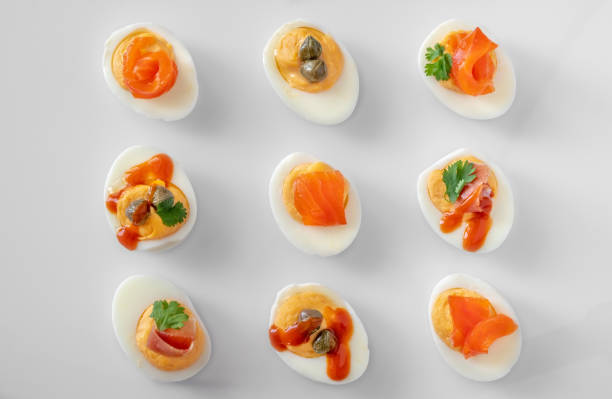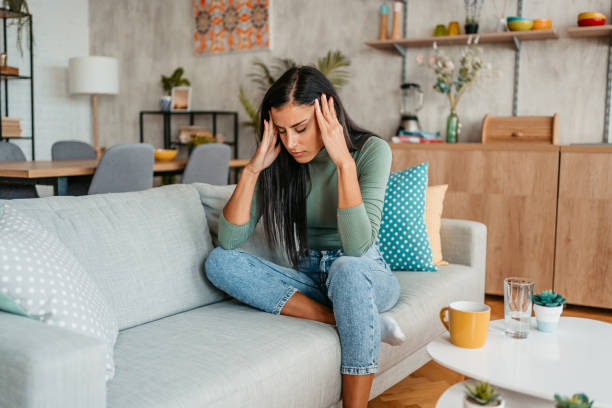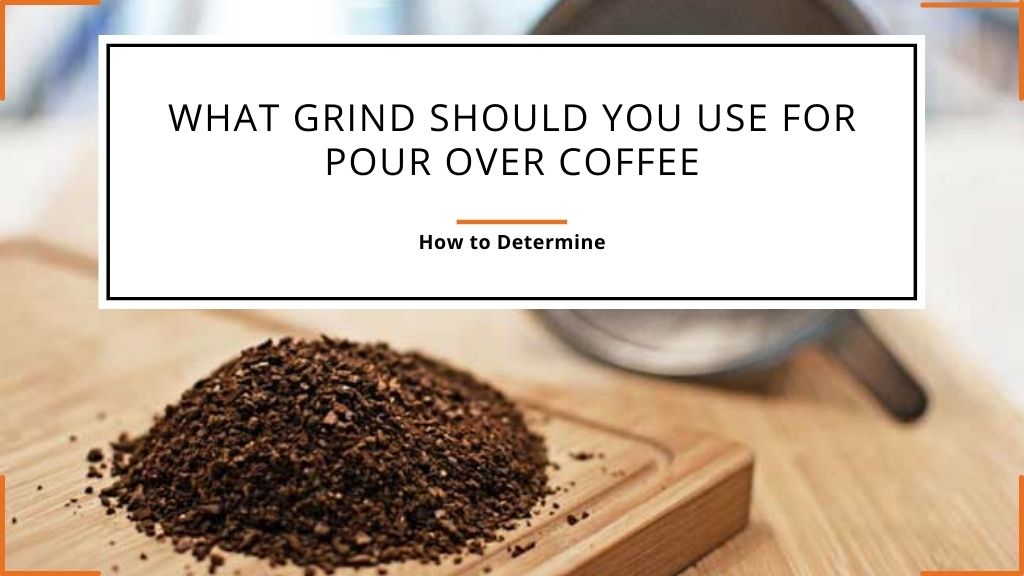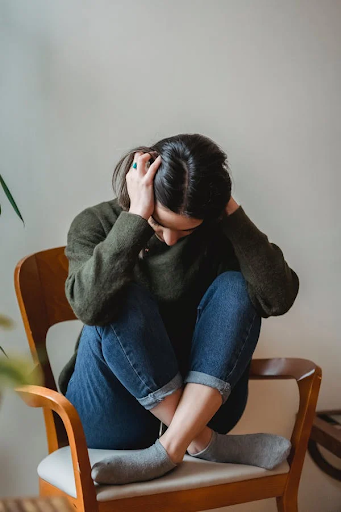9 Reasons On Why Eating Food Help Calm Anxiety

Did you know that food and eating can calm anxiety in many people? The word itself gives you comfort. But it's true, you can actually improve your emotional state through an act as simple as eating your favorite snacks or just having a nice meal at home.
- Eating food helps calm the nerves
You've probably heard the phrase “fight or flight” before. It refers to what happens when the body encounters a situation it perceives as threatening, like when someone gets in your face and yells at you. When this occurs, the hypothalamus (a tiny region in the brain) sends signals to the adrenal glands that tell them to release adrenaline and cortisol, two chemicals that increase heart rate, spike blood sugar levels, and help you take swift action to deal with whatever is causing you anxiety. This is an evolutionary response designed to keep us safe from threats—in other words, helping us either fight or flee from danger. If you're experiencing an anxiety attack, however, your body is triggering that same response for no reason at all. And since that's a situation in which you don't need to be prepared to run or defend yourself from a predator, your body is essentially going into overdrive for no reason.
Eating foods helps calm the nerves can help restore balance by stabilizing blood sugar levels and regulating hormone production that helps calm anxiety. They can also ease anxiety symptoms by promoting relaxation. That's because they contain vitamins and minerals that interact with neurotransmitters in the brain responsible for regulating mood (among other things).
- It releases GABA to help regulate anxiety
Here's the thing about anxiety: it's not just a case of being in your head. It's also about what's happening in your body, which you may or may not have control over. Let's say that you're really anxious about an upcoming test and find yourself having trouble concentrating. The anxiety is giving you the jitters, making it hard to focus and remember things. You get more and more nervous as the time of the test draws near, and the nervousness makes it harder to concentrate, which feeds into your anxiety even more. Fortunately, there are ways to break this cycle so you can be ready when test time comes around.
It turns out that certain types of food can help calm anxiety by releasing GABA (gamma-aminobutyric acid), a neurotransmitter that helps regulate nerve cells in the brain. Certain foods that contain GABA include brown rice, oats, spinach, whole wheat breads and cereals, lentils and beans, citrus fruits, bananas and nuts like almonds or walnuts. Try throwing some walnuts on top of your morning oatmeal or eating a banana with almond butter for a snack to help alleviate a little bit of pre-test stress.
- Helps fight depression
Eating food is something that we do to survive. We have to eat in order to have the energy and nourishment that our bodies need. However, eating is also about more than just survival, it’s about socializing with others and enjoying different tastes and flavors. It can be a pleasurable activity that makes us feel good.
When we are depressed, we often want to isolate ourselves from others and either don’t feel like eating or eat too much in order to try fill the void that we feel inside. A study by the World Health Organization found that over 300 million people worldwide suffer from depression, so you are not alone if this rings true for you.
There have been many studies done on the role food plays in fighting depression. Eating certain foods can certainly help improve your mood, but there are also other reasons why eating may help fight depression.
- Boosts the brain’s serotonin production
Eating certain foods may help relieve anxiety by boosting the brain's serotonin production. Serotonin, a chemical found in the brain and intestines, is believed to promote feelings of calmness and well-being. Foods that contain tryptophan, an amino acid, may help boost serotonin production. These include poultry, eggs and cheese. Researchers have also associated high levels of vitamin B6 with increased serotonin production. Vitamin B6 can be found in foods such as bananas, chickpeas, potatoes and avocados.
There are several other ways you can use food to improve your anxiety symptoms. Some people find that keeping a food diary helps them discover any specific foods that seem to trigger their anxiety symptoms. For example, some people notice that eating certain foods leads to headaches or feelings of panic. Tracking your diet can also help you see if there are any patterns or trends related to your anxiety levels. If you're feeling anxious after meals, for example, you'll want to look for commonalities between the meals themselves, such as what type of food was eaten or whether or not it was consumed on an empty stomach.
- Vitamin C, magnesium and potassium are great for de-stressing the body
Here's how it works: When you're in a high-stress situation, your body pumps out adrenaline, cortisol and other hormones that raise your heart rate and blood pressure. Vitamin C, magnesium and potassium are great for de-stressing the body, which could help relieve anxiety. The more stressed you become, the more depleted you'll be of these vitamins and minerals. This is why you feel so good after eating a plate of fruits and vegetables; they're packed with magnesium, vitamin C and potassium. Dark leafy greens like spinach are especially high in magnesium—one cup provides nearly 40 percent of your daily needs! Next time you're feeling overwhelmed or anxious, reach for some dark leafy greens or a glass of orange juice.
Magnesium helps to reduce anxiety by regulating the levels of the stress hormone cortisol, while vitamin C and potassium help to prevent stress-induced high blood pressure.
These nutrients also help with muscle tension and tightness, which can be caused or increased by stress and anxiety.
One way to make sure you're getting enough of these nutrients is through your diet.
Citrus fruits are high in vitamin C, while bananas are high in potassium and nuts, seeds, tuna and leafy greens are rich in magnesium.
But if you find yourself feeling stressed out often it's a good idea to take dietary supplements as well.
- More sleep equals less anxiety
There's no doubt that getting enough sleep is crucial to your physical and mental health. But if you're an anxious person, you may find that it's especially difficult to wind down at night. You might keep yourself up with worries about what could go wrong in the future or fixate on things from the past rather than just letting your body and mind rest. And when you finally do get some sleep, you could toss and turn all night, wake up exhausted, and have a hard time getting through your day because of it.
But here's some good news: if you can make sleep a priority, it may actually help relieve your anxiety.
It makes you feel more prepared for whatever comes next. Sleep is one of the most effective tools for combatting anxiety. When we sleep, our bodies produce hormones that help us stay healthy and maintain our stamina. Sleep also helps us improve our memories and process information more effectively, so even just one good night's sleep can make you feel much more mentally prepared for whatever challenges come next—and feeling prepared is a huge part of overcoming anxiety.
- It stabilizes your blood sugar levels which can also improve mood and contribute to a reduction in anxiety symptoms
Eating food stabilizes your blood sugar level, which can help you feel more relaxed and regain your focus. Many of our favorite comfort foods are carb-heavy, which causes a release of serotonin—the happy hormone! However, not all carbs are created equal. It's important to stick to whole grains instead of refined grains as they will keep you fuller longer and provide more energy. Also, it's good to pair your carbs with proteins or healthy fats. These macronutrients work together to keep blood sugar levels stable and prevent that dreaded slump that comes after eating sugary sweets or unhealthy snacks. This can be as simple as having a piece of fruit with peanut butter or an apple with some cheese—or even just some almonds alongside your favorite banana bread recipe.”
- Eating food helps combat fatigue
A recent study completed by researchers at the University of Kentucky found that eating food helps combat fatigue is an effective way to help relieve anxiety. Though the study focused on people with social anxiety, the results probably apply to everyone.
Eating food helps combat fatigue is one of the few natural remedies that has been scientifically proven to relieve symptoms of anxiety.
It's important to note that this isn't just a matter of feeling relaxed after eating food helps combat fatigue. The research shows that eating food helps combat fatigue and actually changes how your brain reacts to stressful situations—which could be why it works so well for relieving symptoms of anxiety disorders.
- Food can help support healthy brain function
We're all aware that our state of mind can affect how we eat, how much we eat, and what kinds of foods were drawn to. But are there foods that actually help to reduce anxiety? More importantly, can these foods be part of an ongoing, long-term strategy for anxiety relief?
The answer is yes! Certain nutrients help the brain function optimally. A well-functioning brain leads to better mood control and less anxiety.
Foods to avoid are those that are high in sugar and refined carbohydrates. These foods will give you a quick boost of energy but will also cause blood sugar spikes that lead to blood sugar crashes. This is followed by irritability and fatigue, which can worsen anxiety symptoms.
It's also important to stay away from caffeine and alcohol, which can both increase anxiety symptoms. And if you're prone to being overstimulated or stressed out easily, you may want to try avoiding highly processed foods. They tend to contain additives like MSG and artificial flavors and colors, which can make a sensitive person feel more anxious and on edge.
In conclusion, helping yourself through tough times by eating food can really boost your metabolism and the brain, keeping you healthy and calm. By reminding yourself of the reminders above you will be able to help fight anxiety through food in a natural way without the need of medication. Eating is part of life and food is part of living so make sure you stay healthy and happy by eating the right food that is good for you.
For more helpful and informative insights, visit here.





